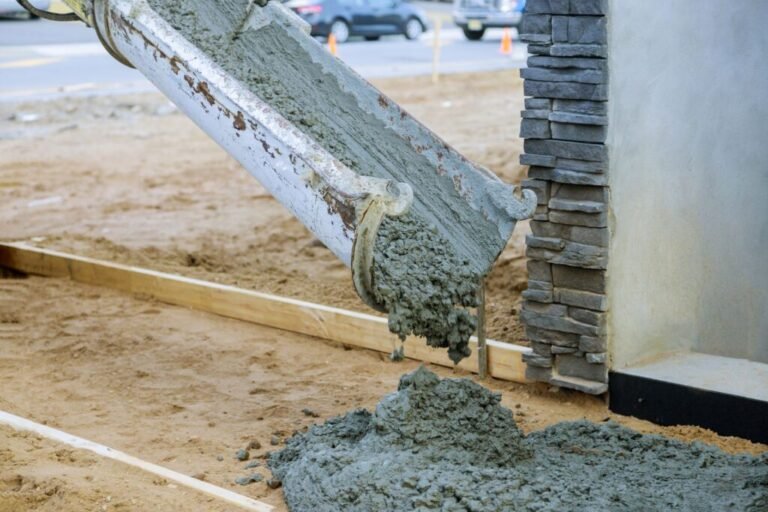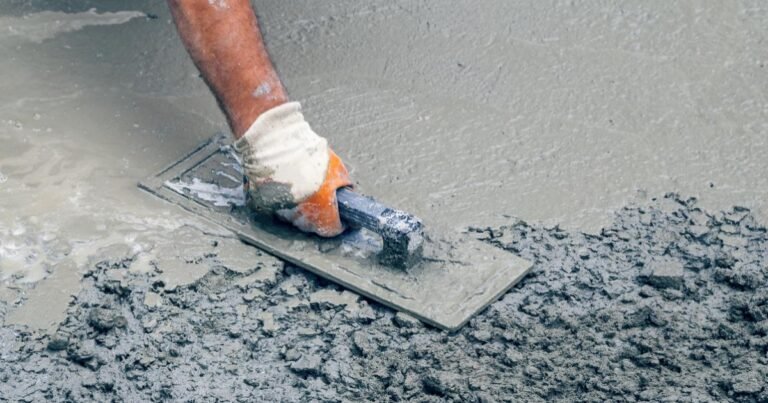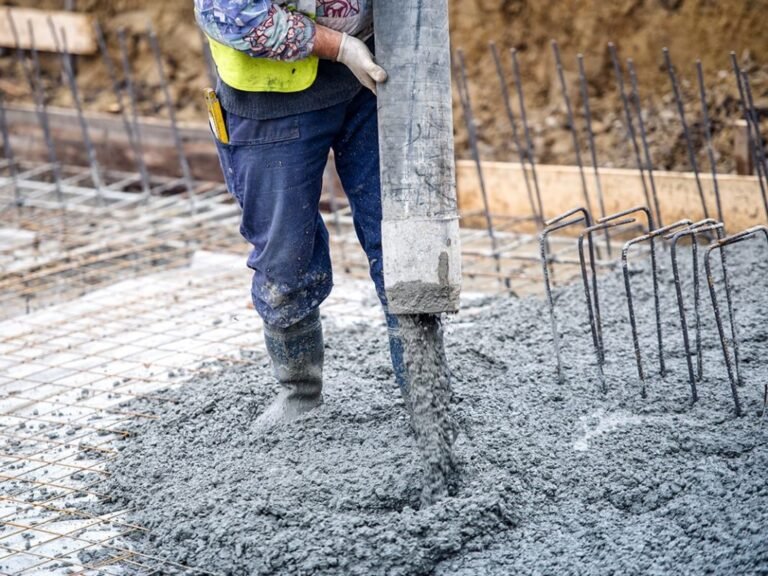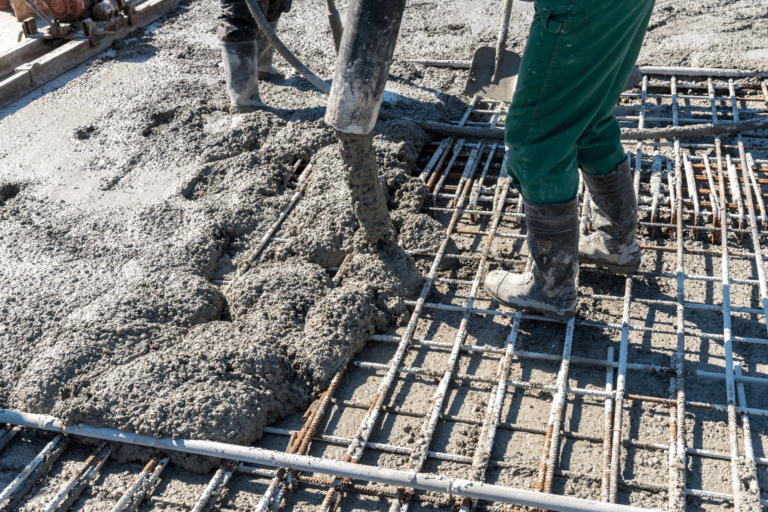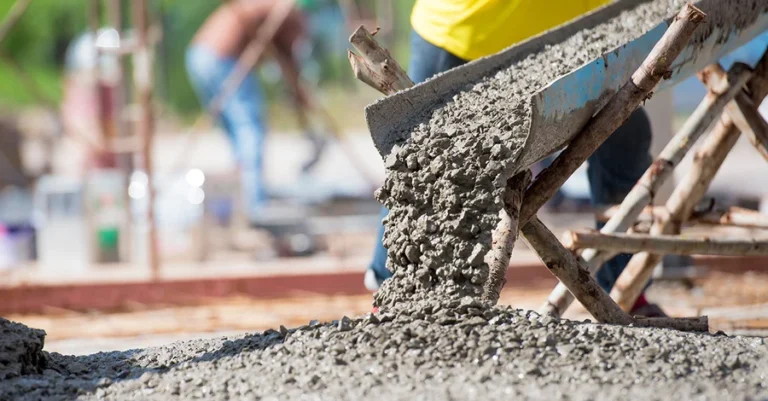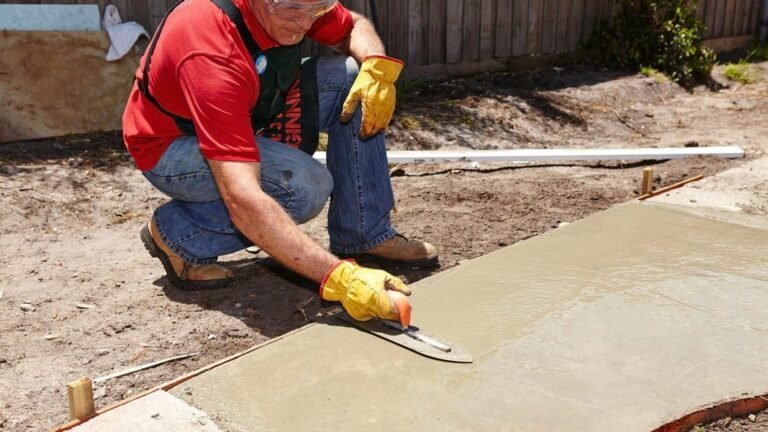Concrete isn’t one-size-fits-all. From basic mixes to decorative finishes, each type serves a specific purpose—some built for strength, others for aesthetics. Knowing which type to choose helps your project stand the test of time.
In this blog, we’ll explore the most common types of concrete and where they’re best used—whether for driveways, patios, sidewalks, or foundations. If you’re planning a new installation or need expert repairs, contact Greenville Concrete Contractor for free consultation!
Phone: (912) 361-6661
Email: contact@greenvilleconcretecompanysc.com
Different Types of Concrete
1. Regular Concrete (Also Called Ready-Mix)
This is one of the most common types used in everyday projects. It is poured straight from the truck and works great for sidewalks, driveways, patios, and slabs. It sets quickly, dries evenly, and holds up well under normal use.
Best For:
- Residential driveways
- Garage floors
- Walkways
Why It Works:
It is affordable and reliable for everyday use.
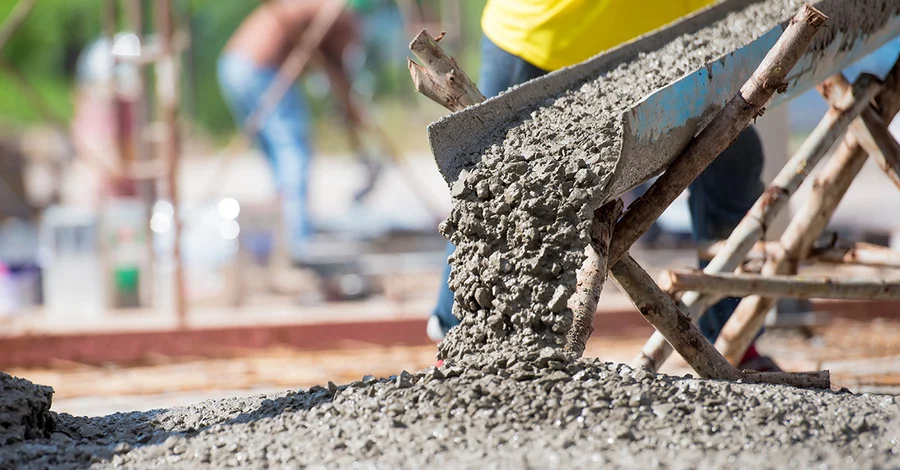
2. Stamped Concrete
Do you want something that has the strength of concrete but looks like brick or stone? Then, stamped concrete is what you need. It is often used in patios and pool decks because it brings beauty and durability together.
Best For:
- Pool surrounds
- Backyard patios
- Entryways
Why It Works:
It offers a decorative look without losing strength.
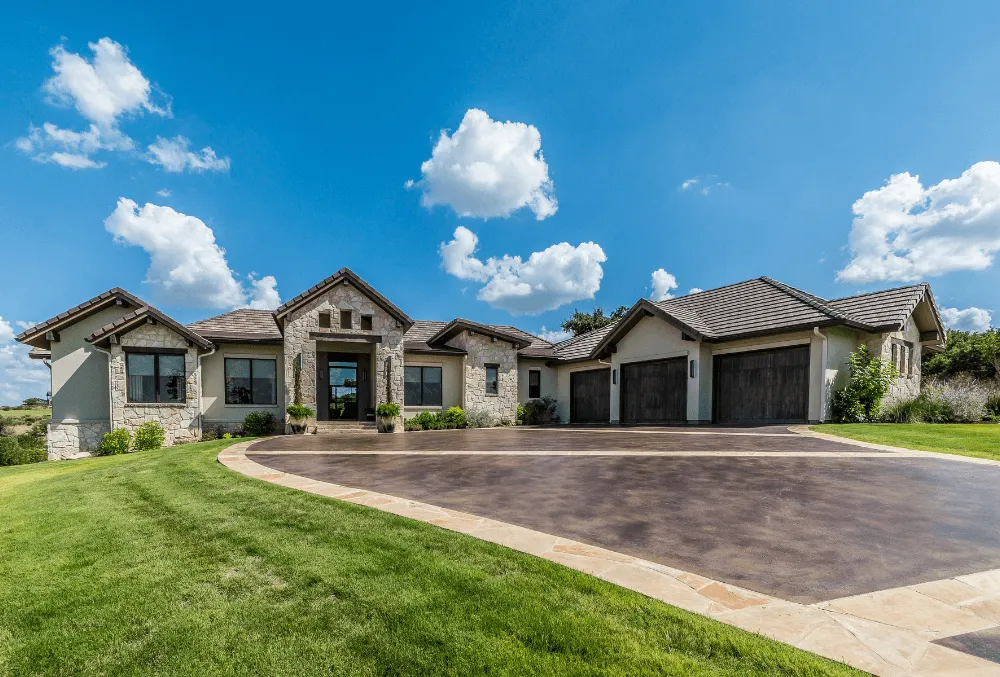
3. Exposed Aggregate
Exposed aggregate is a mix that shows the stone and pebbles on the surface. It is a popular choice among residents who want something slip-resistant and elegant.
Best For:
- Pool decks
- Outdoor walkways
- Decorative borders
Why It Works:
It is textured, visually striking, and strong.
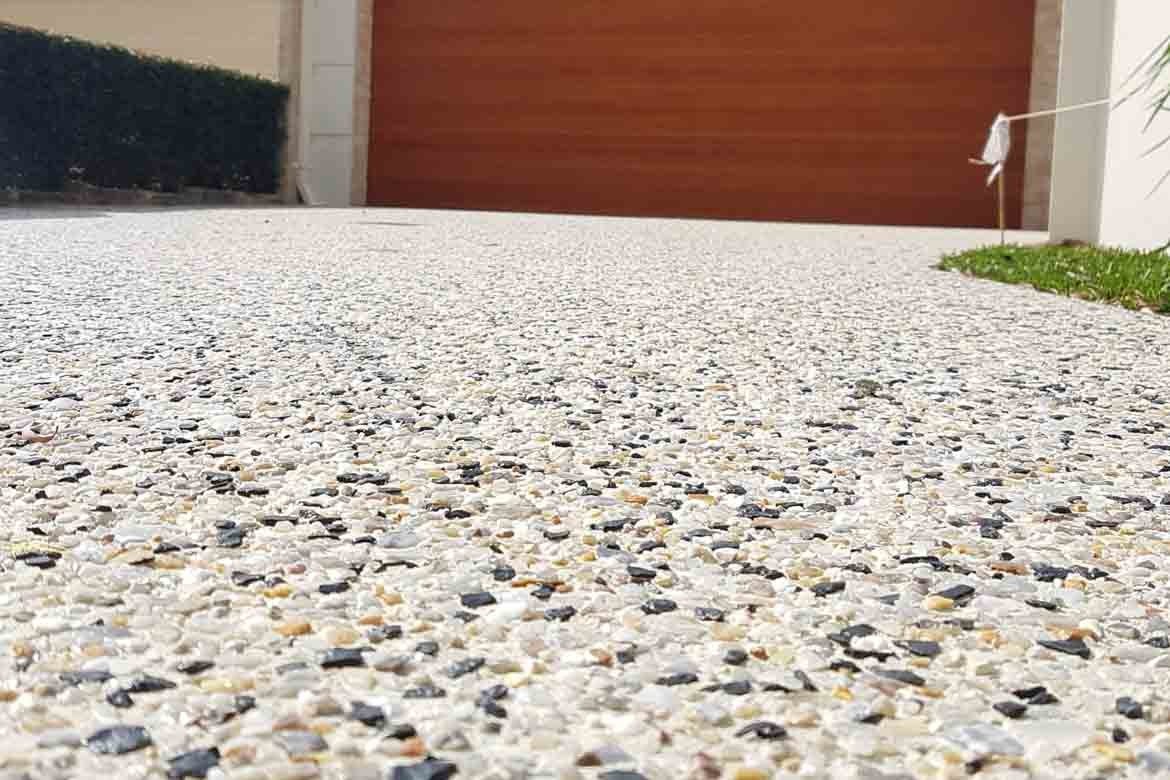
4. Fiber-Reinforced Concrete
This is regular cement with fibers mixed in. These fibers help prevent cracking and boost durability. We recommend it for areas with heavy use or shifting ground.
Best For:
- Industrial floors
- Driveways
- Foundations
Why It Works:
It adds strength without needing rebar in small jobs.
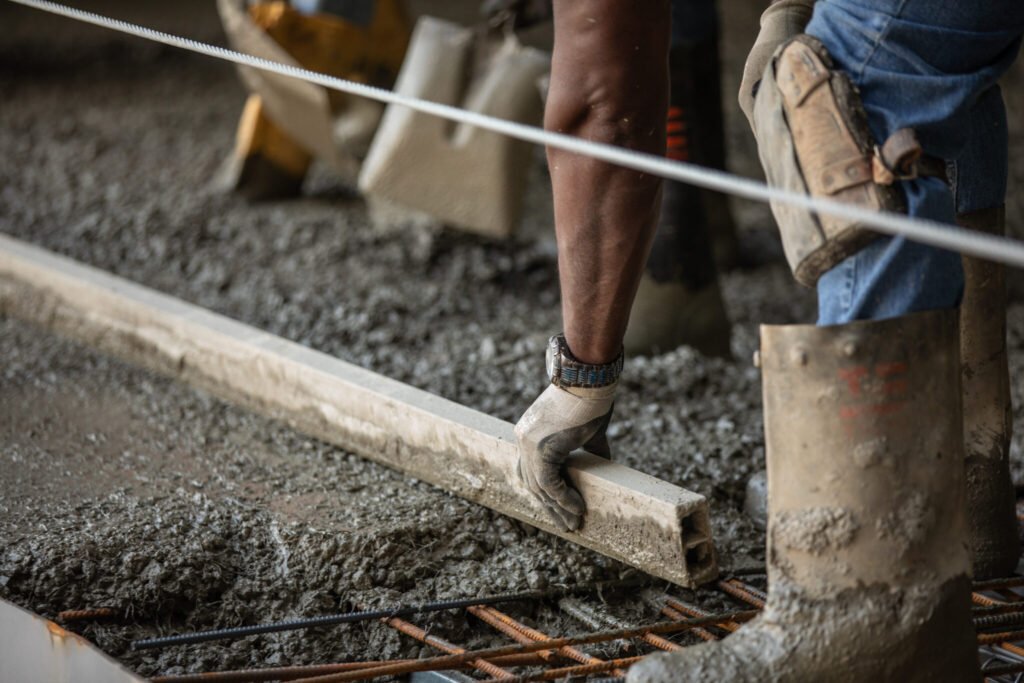
5. High-Strength Concrete
As the name suggests, this one’s all about power. It is ideal for commercial or structural projects because it can handle heavy loads.
Best For:
- Parking lots
- Large commercial pads
- Retaining walls
Why It Works:
It supports more weight and resists pressure.
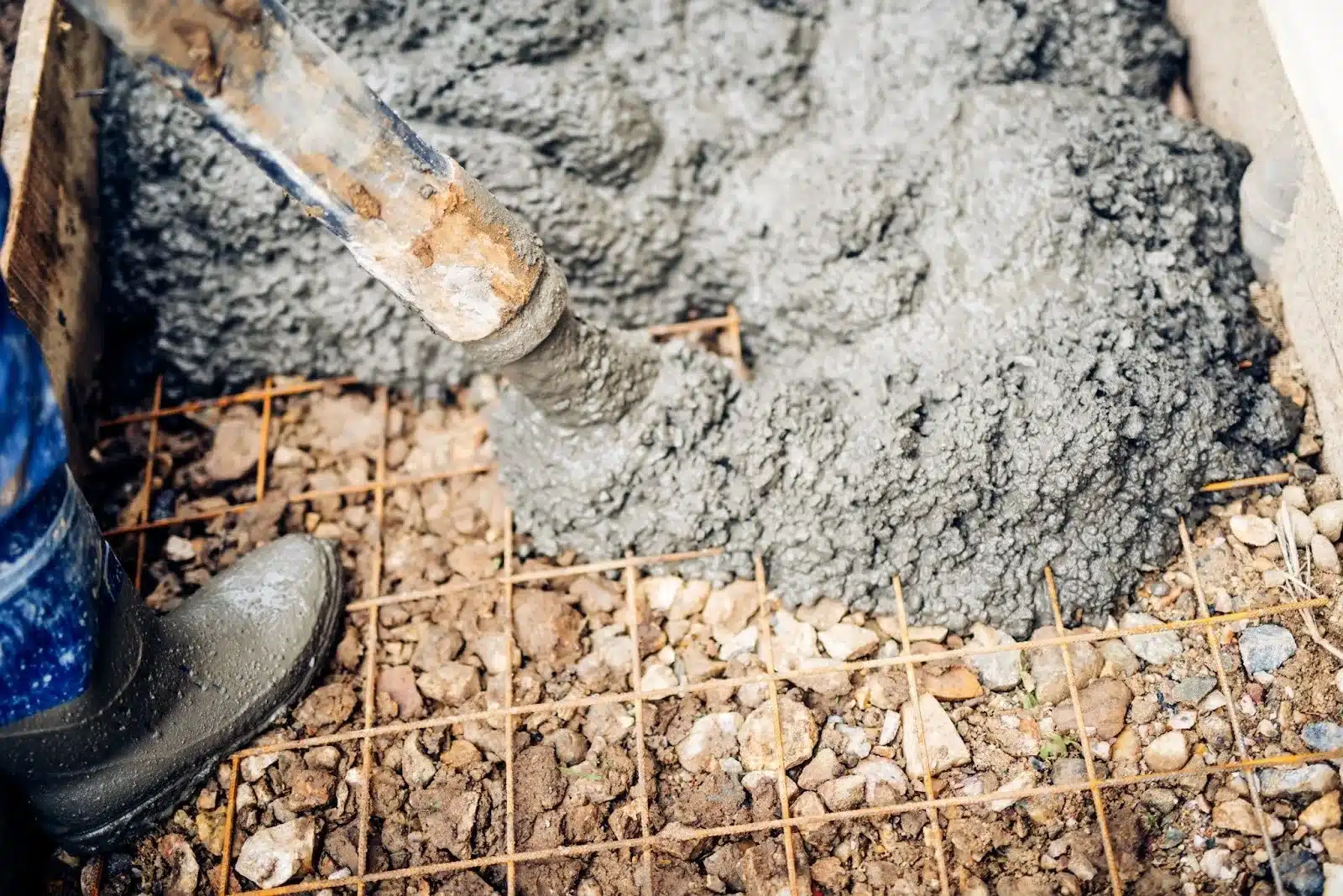
6. Pervious Concrete
Pervious Concrete (also called permeable or porous concrete) is a specialized type of concrete designed to allow water to pass through it, making it ideal for managing stormwater and reducing runoff.
Best For:
- Driveways in flood-prone areas
- Walkways in parks
- Green building projects
Why It Works:
It improves drainage and reduces runoff.
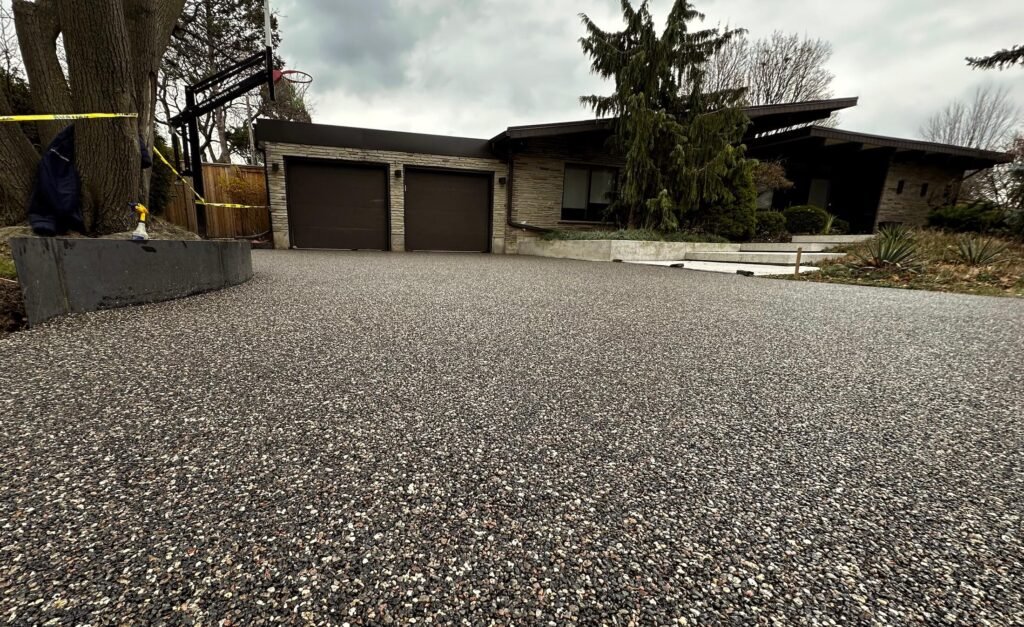
7. Colored Concrete
Grey isn’t always enough. With colored concrete, you can add style and color to your indoor or outdoor area without compromising durability.
Best For:
- Decorative patios
- Garden paths
- Interior flooring
Why It Works:
You get the look you want with the durability you need.
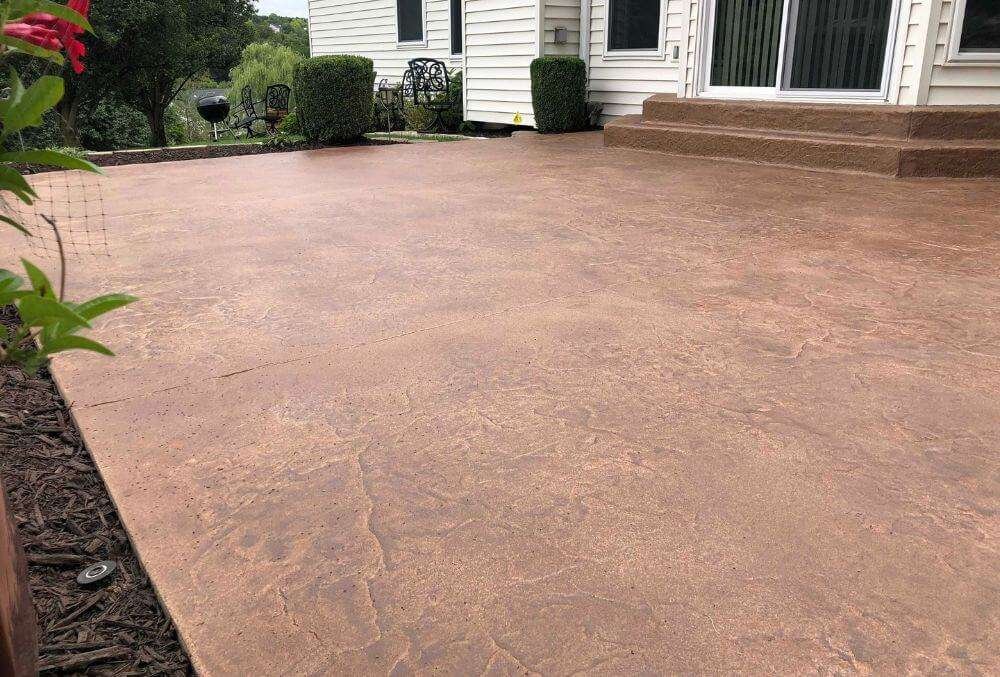
Picking the Right Type for Your Project
Every job is unique, just as every home is. If you’re not sure what type fits your space, don’t worry. That’s exactly where Greenville Concrete Contractors comes in. They guide each client through their options so they get long-term value, not just a quick fix.
They offer a full range of concrete services, including:
No matter the size or scope of your project, their team delivers reliable results built to last. Call them now to get free quotes!
Frequently Asked Question(s)
1. How long does concrete take to fully cure?
While concrete sets within 24–48 hours, it typically takes 28 days to fully cure and reach maximum strength. During this time, it’s essential to protect it from heavy loads and moisture loss.
2. Is pervious concrete suitable for heavy vehicles?
Pervious concrete is best for light-duty applications like walkways and residential driveways. It isn’t recommended for areas with frequent heavy truck traffic due to lower compressive strength.
3. Can colored concrete fade over time?
Yes, colored concrete can fade due to sun exposure and weather conditions. However, using a UV-resistant sealer and regular maintenance can help preserve the color longer.
